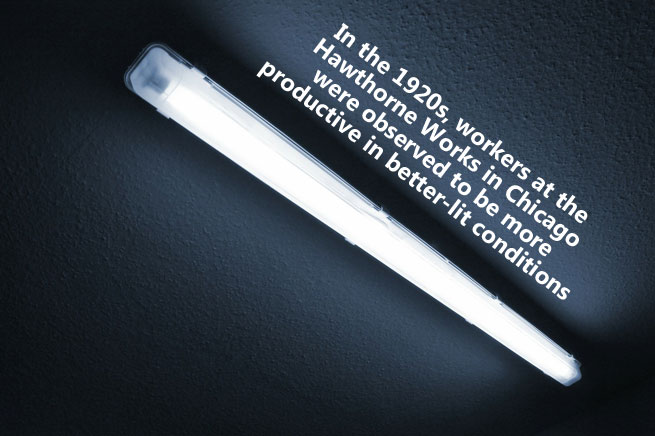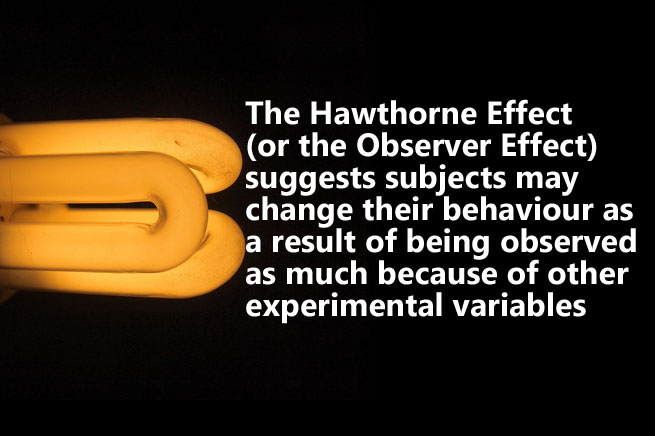



In the 1920s, workers at the Hawthorne Works in Chicago were observed to be more productive in better-lit conditions.
The initial conclusion was that paying more attention to working conditions would improve how well workers performed.
In the 50s Landsberger suggested that the study failed to account for how people modify their behaviour when being observed.
The Hawthorne Effect (or the Observer Effect) suggests subjects may change their behaviour as a result of being observed as much because of other experimental variables.
Rate and Review
Rate this article
Review this article
Log into OpenLearn to leave reviews and join in the conversation.
Article reviews